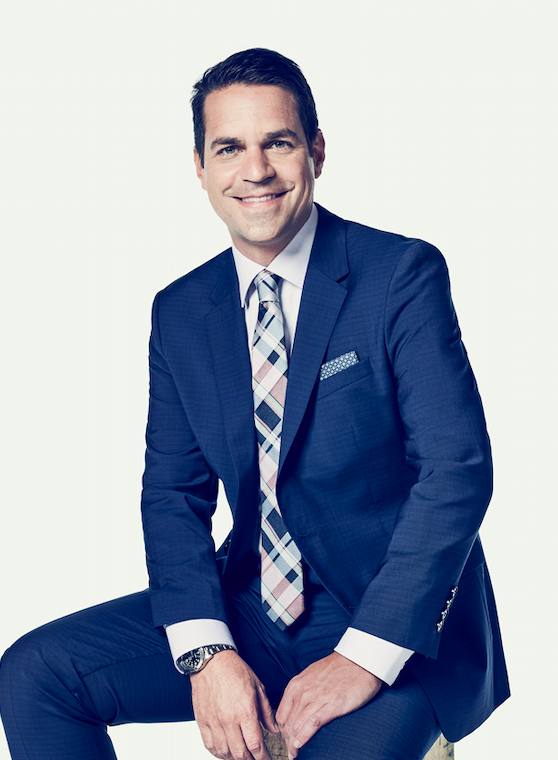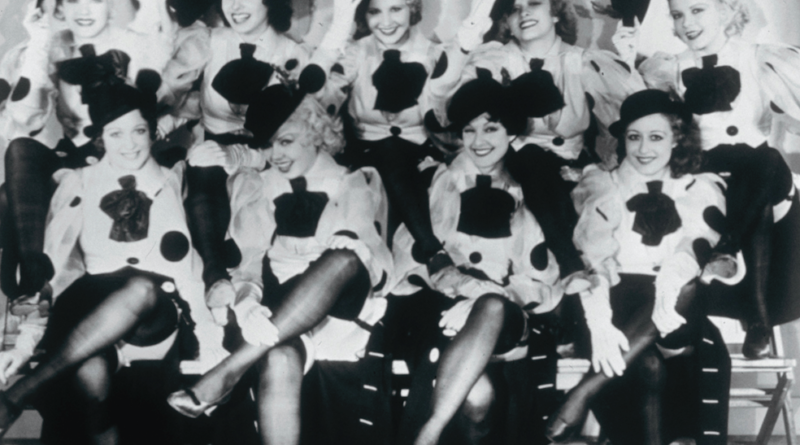INTERVIEW: TCM’s Dave Karger explores movie musical history on new series
Photo: 42nd Street is one of the movie musicals featured on TCM Musical Matinee. Photo courtesy of TCM / Provided with permission.
The newest franchise on Turner Classic Movies is called TCM Musical Matinee and comes to the network courtesy of host Dave Karger. Every Saturday at 12 p.m. EST, Karger invites viewers to travel back in time to watch a movie musical, some of them known and much-heralded, others forgotten to the history books. The program is readymade for those in the know — viewers who live and breathe Fred Astaire and Ginger Rogers — or those looking to expand their musical memory and have a curated afternoon of singing, dancing and cinematic Broadway — and perhaps learn a few lessons about American cinematic history along the way.
“I’ve been hosting on TCM for a few years now, and I thought it would be fun and interesting for me to have a weekly franchise of my own, something that I could help develop and program,” Karger said in a recent Zoom interview. “My colleague, Eddie Muller, of course, has Noir Alley every weekend, and then Alicia Malone has TCM Imports, and Jacqueline Stewart has Silent Sunday Nights. So I was trying to think, well, what is something that I could do and really have a hands-on input in the creation and the planning of it, so I pitched a number of ideas to the TCM folks. And the one that they came back liking the most was this idea of a weekly musical.”
Karger defines himself as a “music-head,” someone who actually first fell in love with music before he fell in love with film. He has fond memories of sitting as a child with a Mickey Mouse record player and playing 45 vinyls nonstop.
“I was just a music freak, and I played the piano very seriously and did musical theater,” he said. “So it just seemed like a great fit, and it’s been lovely to me to see what the reaction has been from the viewers so far. They seem kind of excited by it.”
TCM’s first entries on Musical Matinee included everything from 1951’s An American in Paris to 1933’s 42nd Street. Right around Thanksgiving audiences watched 1982’s Annie, and there was also the Doris Day musical I’ll See You in My Dreams. The Oscar-winning Cabaret was included recently as well. Karger said that some of the entries are clearly dated with problematic scenes. “My Fair Lady, which is a movie that I absolutely adore, I know that’s going to be part of the series sometime soon,” the host said. “There’s some thematic things going on there that aren’t perfect when you look at them in 2022, but I do think overall a lot of them do hold up.”
Karger’s vision for Musical Matinee is to have four different types of musicals on display, hopefully one per month. The first category, in his mind, is labeled “early sound musicals,” and these would be black-and-white features from the 1930s and 1940s. This would include some of the classics starring Astaire and Rogers. “The second category is more lavish, color, mid-century spectacles, The Music Man, My Fair Lady,” he said. “The third bucket I’m calling ‘discovery films,’ films that a hardcore fan certainly knows, but the casual classic movie fan might not be that familiar with.”
Thanks to Karger’s working relationship with co-hosts like Leonard Maltin and Michael Feinstein, who both have an encyclopedic knowledge of movies and movie musicals, Musical Matinee is ready to take the deep dive into some of these “discovery films.”
“The one that comes to mind is Reveille with Beverly, this absolutely delightful Ann Miller musical,” Karger said. “And then the fourth category I call ‘wild cards.’ Those are either films from my lifetime — I’m about to 50 years old — so things from the ‘70s to today, like Cabaret or Annie, or movies that are not typical musicals but have a musical component to them. So maybe that’s A Hard Day’s Night or a documentary like Woodstock, so I want one film each month to be a little bit out of the box so that we’re mixing it up and appealing to as many different kinds of people as we can.”
Karger said no two movie musicals are the same. For example, the early musicals were written specifically for the screen, with producers, directors and writers trying to capitalize on the charm of bankable stars, such as Astaire and Rogers. They often used songs from knowledgable composers, such as George and Ira Gershwin, or Irving Berlin.
“Then you had this kind of mid-century explosion of … Broadway musicals that became films — My Fair Lady, The Music Man, things like that,” he said. “The general trend is that these were hits on Broadway first, particularly in the middle of the century. But then, of course, you have movies like Hairspray, which is a favorite of mine, which was a movie then a musical and then a movie of the musical. So they do kind of feed each other, the two media, and I think that’s fun.”
Karger added: “When a movie musical is great, and it’s firing on all cylinders, it’s a wonder to behold, and I really do think that’s true. There are so many aspects that have to go right and have to gel with each other, much more so than in a movie that doesn’t have musical numbers. … You get to witness the most jaw-dropping talent of anybody. You look at Liza Minnelli. She’s singing, she’s dancing, she’s acting. Look at Fred and Ginger, look at Eleanor Powell, look at Gene Kelly, the Nicholas Brothers — the things that these people were able to do with so many different skill sets I think is astonishing.”
By John Soltes / Publisher / John@HollywoodSoapbox.com
TCM Musical Matinee with host Dave Karger airs Saturdays at 12 p.m. EST on TCM. Click here for more information.
Updated with additional Gershwin and Berlin information.



“For example, the early musicals were written specifically for the screen, with producers, directors and writers trying to capitalize on the charm of bankable stars, such as Astaire and Rogers. They often used existing songs from knowledgable composers, such as George and Ira Gershwin, or Irving Berlin.”
Except that Irving Berlin and the Gershwins wrote entirely new songs for their Astaire-Rogers musicals (among other early musicals).
Thanks for the comment. That’s a great point, and I deleted “existing” to make the point a little clearer. Thanks for reading.